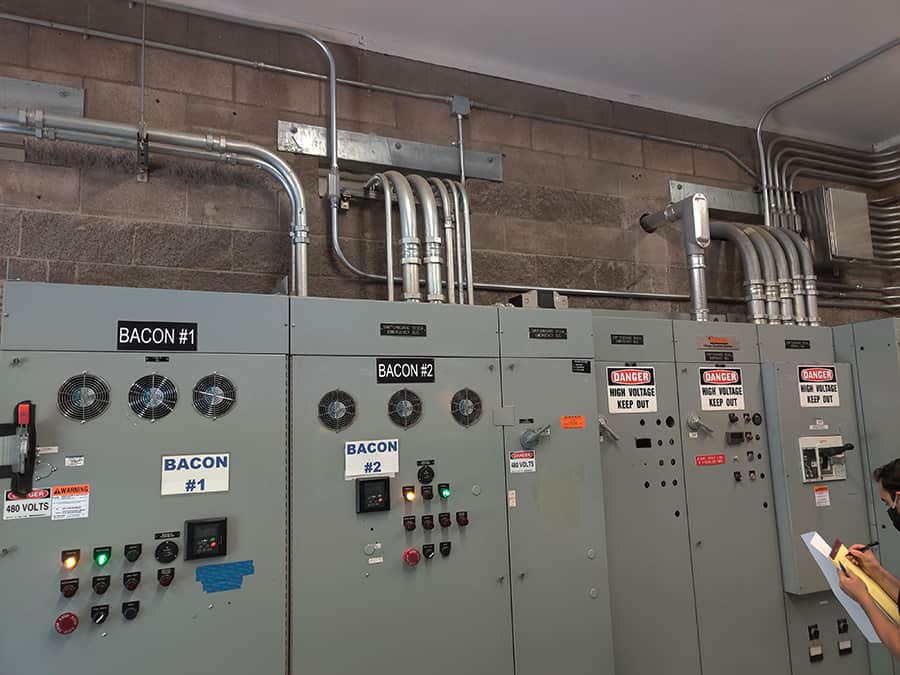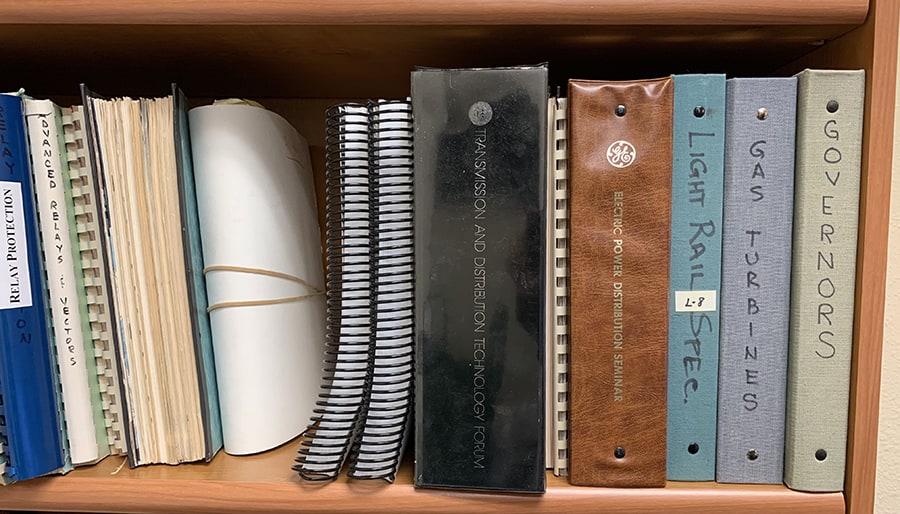There are 9 engineer habits all successful engineers share. Embracing these habits as a rookie engineer will give your career a turbo boost.
By leveling up, you’ll be able to:
- Lead massive, intricate projects
- Boost your paycheck
- Grow your confidence
- Earn the respect of your peers and clients
- Launch and run a thriving engineering business
#1 Become a time management ninja
Oftentimes, you’ll be flying solo, so self-management is crucial. Otherwise, you’ll face missed deadlines and a queue of pissed-off folks.
To master time management, create daily to-do lists with structure. Say goodbye to twiddling your thumbs and hello to working like a well-oiled machine, sending your productivity through the roof!
Moreover, I recommend:
- Eliminating distractions for laser focus
- Prioritizing tasks based on deadlines and workload
- Learning to multi-task like a pro
#2 Stay on top of industry standards

Get well-versed in your industry’s standards, so your work gets the green light from inspectors. Plus, following ethical principles in engineering means your designs are safe and functional, helping you sleep easy at night.
If standards don’t exist to ensure safe designs, step up! For instance, create drawing standards for your company to deliver top-notch quality. Start by learning how to properly review engineering drawings and explore the unspoken rules in engineering to find areas to improve.
Engineering companies often struggle with:
- Documentation
- Project review protocols (QA/QC)
- Training material
- Employee accountability
#3 Keep the communication flowing with all stakeholders
Always keep project stakeholders in the loop with updates.
It’s maddening when I’m left in the dark, especially when someone agrees to do work, then goes radio silent. Weeks fly by, deadlines pass, and all I hear are crickets.
These folks have zero respect for our commitments and the client. Delayed work always impacts the entire team, and as the head honcho, I’m left explaining to the client why the work’s incomplete. It makes us all look bad.
In a nutshell, ditch the bad apples, and build solid communication pipelines. After all, poor communication sparks most engineering problems.
To level up your communication skills, check out my articles:
- Master engineering email writing using these 14 tips
- 12 engineering writing tips you need to know
- Engineering writing style guide – 6 things to know
- 12 ways to improve public speaking skills for engineers
#4 Embrace the quest for knowledge

Embark on a never-ending journey of learning and make it an integral part of your life. You don’t want to find yourself thinking,
“Alright, I’ve learned enough. I’ve reached my lifetime knowledge limit.”
Thanks to our ever-evolving technology, there’s always something new and exciting to discover, regardless of how niche your expertise may be. By continuously expanding your knowledge, you’ll unlock your full potential as an engineer. In fact, it’s this insatiable thirst for knowledge that forges brilliant engineers.
#5 Backup your digital work
You know what really grinds my gears? Losing all my hard-earned digital work in a blink of an eye. That’s why I’m a backup fanatic, constantly saving my stuff and making sure my apps have auto-save enabled. Plus, I create multiple backup copies to guarantee my work’s security.
With fantastic cloud services like Dropbox available today, you can snag 1 TB of storage space for a steal. To hammer home the significance of backing up your work, let me spill a hair-raising story from my past.
Early in my career, both my hard drive and server crashed together, wiping out a treasure trove of data. Poof! Months of complex engineering designs, drafts, and project notes gone just like that. Thank goodness I had printed copies of some work, so I didn’t have to start from square one, but man, it was a royal pain in the ass to rebuild my files. In today’s digital era, having multiple backup sources is an absolute must!
#6 Properly gauge project timelines
Hone your skills in breaking down project scopes and assessing clients to create accurate project schedules. After all, when you, the expert, tell a client that a job will take a month, they trust your word.
The last thing you want is to overshoot your deadline by weeks or even months, with everyone and their mother breathing down your neck.
To size up a project, consider these factors:
- Customer evaluation: Are they responsive? Will they provide everything you need quickly? If they’re slow before the project starts, they’ll likely remain slow throughout.
- Available information: How much critical project data do you have? If it’s lacking, you may need field investigations or R&D work.
- Scope of work: Is the scope clearly defined? If not, the project could spiral into a messy, drawn-out affair.
- Your schedule: Are you swamped? Do you expect your workload to increase?
By addressing these questions, you can craft more precise project timelines. Plus, the more projects and clients you handle, the better you’ll become.
#7 Meticulous documentation

Document everything, even the seemingly insignificant details. Trust me, those trivial bits often resurface later, and you don’t want to waste time relearning them.
So, when you’re in the thick of a project, jot down everything you learn. I always take notes after:
- Hours of research
- Receiving detailed info from vendors
- Getting answers from other engineers on unfamiliar topics
- Making critical design decisions for projects
- Gathering agency information (e.g., lead times for certain activities)
- Troubleshooting field problems
I recommend storing your notes online using one of the many cloud services for easy access on any device.
Another pro-tip: add long-tail keywords to your digital notes for effortless searching. Moreover, organize your notes into folders and sub-folders. The more structured your notes, the more valuable they become.

Important Note: Add long-tail keywords to your digital notes for effortless searching. Moreover, organize your notes into folders and sub-folders. The more structured your notes, the more valuable they become.
#8 Check your work
Learn the art of thoroughly checking every nook and cranny of your work. Start by following your company’s review standards. If needed, create your own review checklist to catch any pesky slip-ups.
Eventually, the review process becomes second nature, like brushing your teeth before hitting the sack. You’ll examine your work like a pro, sniffing out mistakes. Trust me, when engineers get cocky and skip the review process, trouble’s just around the corner.
Better yet, pass your engineering work to others for a fresh set of eyes. Two heads are definitely better than one! Make peer review a part of every project.
Check out my guide on how to double-check engineering calculations.
#9 More kickass habits to develop
Here’s a roundup of articles I’ve written to help you forge unstoppable engineer habits:
- 5 NASA Engineering Mindset Lessons for Engineers
- Importance of hands-on skills for engineers
- 5 Ways to Master Leadership in Engineering
- Learning From Engineering Failures – 4 Things to Know
- 5 Key Social Qualities of a Great Engineer
- 15 Non-Technical Things Every Engineer Should Know
- Engineering Mindset Examples by 10X Engineers
- How to Improve as an Engineer? 10 Things to Know
- The 17 Elon Musk Learning Strategy Lessons
- 10 Easy Tips on How to Work Like a Machine
At the end of the day, becoming an exceptional engineer or even a 10x engineer boils down to the blood, sweat, and tears you invest in leveling up.
Ask yourself these questions:
- Are you game to go the extra mile in soaking up knowledge?
- How far out of your comfort zone are you willing to step for learning?
- What sacrifices will you make to crank up your work output?
Keep in mind, most of your learning won’t happen within classroom walls. I’m a firm believer that real-world experience trumps any classroom learning, and that’s why I think engineering education needs a shake-up.
Powerful engineer habits wrap up
We’re all just a bundle of habits, engineers included. So, by embracing powerful engineer habits, you’ll push your abilities to the max.
The payoff? You’ll get to work on more awesome projects and feel a greater sense of fulfillment in your work. A win-win, indeed!
What engineer habits have made the biggest impact on your career? Conversely, which habits have been a major buzzkill?
